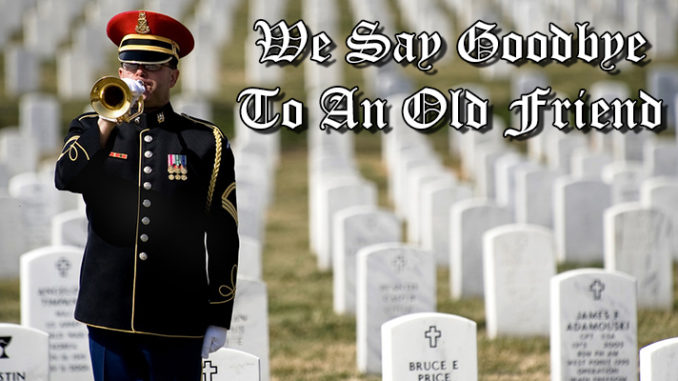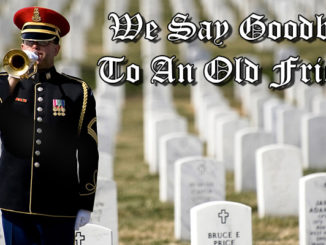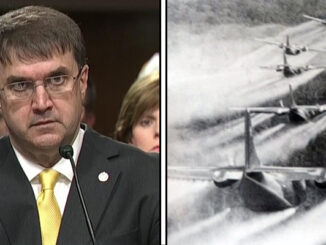
WAR CORRESPONDENT DAN CAMERON-RODILL
DIES IN NEW YORK – MILITARYCORRUPTION.COM’S
LONG-TIME EDITORIAL DIRECTOR COVERED THE
FALL OF SAIGON FOR CBS NEWS – WAS ALSO
WRITER FOR CHICAGO TRIBUNE – PHILADELPHIA
NATIVE WON PLAUDITS FOR COMBAT COVERAGE
IN VIETNAM AND CAMBODIA – REST IN PEACE,
DEAR FRIEND – YOU WILL NEVER BE FORGOTTEN
© 2017 MilitaryCorruption.com
By MAJ GLENN MacDONALD
U.S. Army Reserve (Ret.)
EDITOR-IN-CHIEF
“As life runs on, the road grows strange
With faces new, and near the end,
The milestones into headstones change,
‘neath every one a friend.”
He fought hard to the end – as hard as he knew how, and that was something to see.
My friend of nearly 50 years, fellow Scot, brother war correspondent and “bao chi,” has breathed his last. MilitaryCorruption.com’s long-time editorial director, Dan Cameron-Rodill, died Sunday at Mt. Sinai Hospital in New York. He was 80 years old.
Dan first arrived in Vietnam in 1969, some three years after I landed “in-country” as a U.S. Army combat correspondent. Our many years in Indochina paralleled each others and included war coverage in Cambodia and Laos, as well. When MCC started up 17 years ago, he was our first and only choice for editorial director.
A native of Philadelphia, Dan marched to the beat of a different drum. He was fiercely independent and didn’t have a phony bone in his body. When he was your friend, you knew he would be there for you, no matter what. Perhaps our half-century bond of friendship was formed long before our birth when the ancestors of Clan MacDonald and Clan Cameron, fought side-by-side in Scotland against a common enemy.
COVERING THE WARS IN INDOCHINA
Within a week of his accreditation as a freelance correspondent, Dan left behind the relative comforts of Saigon for life in the field, going out on patrols with the 25th Infantry. His vivid front-page stories filed to the English-language Saigon POST won him respect from others in the press corps, including the greatest war correspondent of them all, the AP’s Pulitzer Prize-winner, Peter Arnett.
When Phnom Penh, Cambodia was under siege by the Communist Khmer Rouge, Dan rode a rice-laden freighter up the blockaded Mekong River under constant enemy fire. He recalled to me one time by the pool at the Hotel Royale (known as Le Phnom during the war), that an RPG round put “a good-sized hole” in the ship’s hull “just above the waterline.” He told me if the hit had been a little lower. the boat could have been sunk.
Dan’s best and bravest moments came in 1975 when he volunteered, along with British correspondent Eric Cavaliero, to man the CBS NEWS Bureau after the regular staff had left in the American helicopter evacuation. No one knew for sure what the invading Communist troops would do to any American newsmen who remained behind after the fall of Saigon. Would they be arrested or worse for being possible “CIA agents?” It was a very real risk, indeed.
However, Dan Cameron-Rodill, never lacking in courage and sheer guts, stayed on and did his job very well despite difficult working conditions. It almost cost him his life
HE REFUSED TO “GIVE IN”
About ten days after North Vietnamese tanks rolled into Saigon, a group of surly “bo doi” barged into the CBS bureau office in the Caravelle Hotel demanding at gunpoint Dan and Eric “hand over” their network news film to the Communists. Many thoughts raced through Cameron-Rodill’s mind as he stared down the barrel of an AK-47 assault rifle, but surrendering the film cans wasn’t one of them. Acquiescing to such demands would adversely affect other reporters and news organizations still functioning in Saigon. He knew that.
As soon as they heard of the confrontation, to their everlasting credit, Peter Arnett and Marty Wollencott of the Manchester GUARDIAN rushed over to the CBS office and joined in the protest. Shooting was avoided when, at the last minute, a North Vietnamese Army colonel was located who curtly dismissed the now-suddenly meek soldiers who slinked off in short order.
Wracked with cancer, the use of both legs and one arm already gone, Dan painfully laid in his hospital bed in Manhattan, many years and thousands of miles from the veranda of the FCC (Foreign Correspondents Club) in Phnom Penh. A shot of morphine coursing through his veins, Dan closed his eyes here and opened them again up above “in that press camp in the sky, where the bar never closes and the drinks are on the house.”


